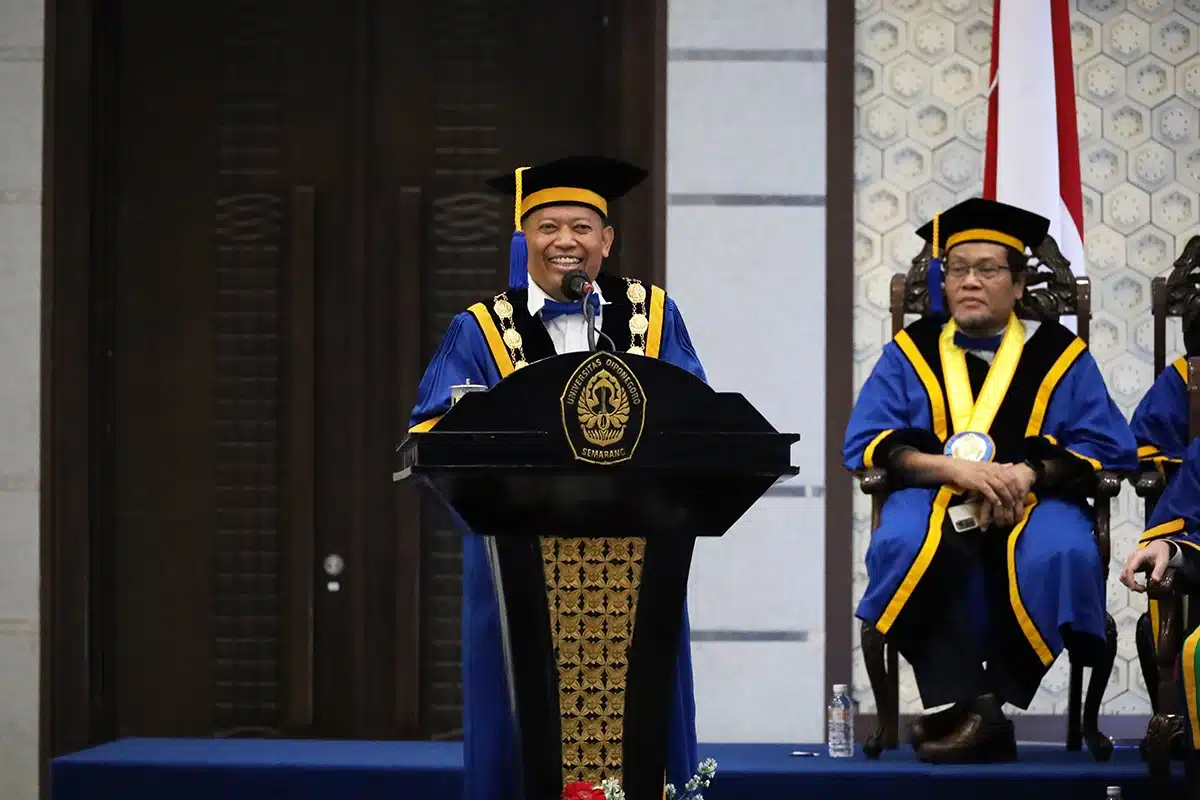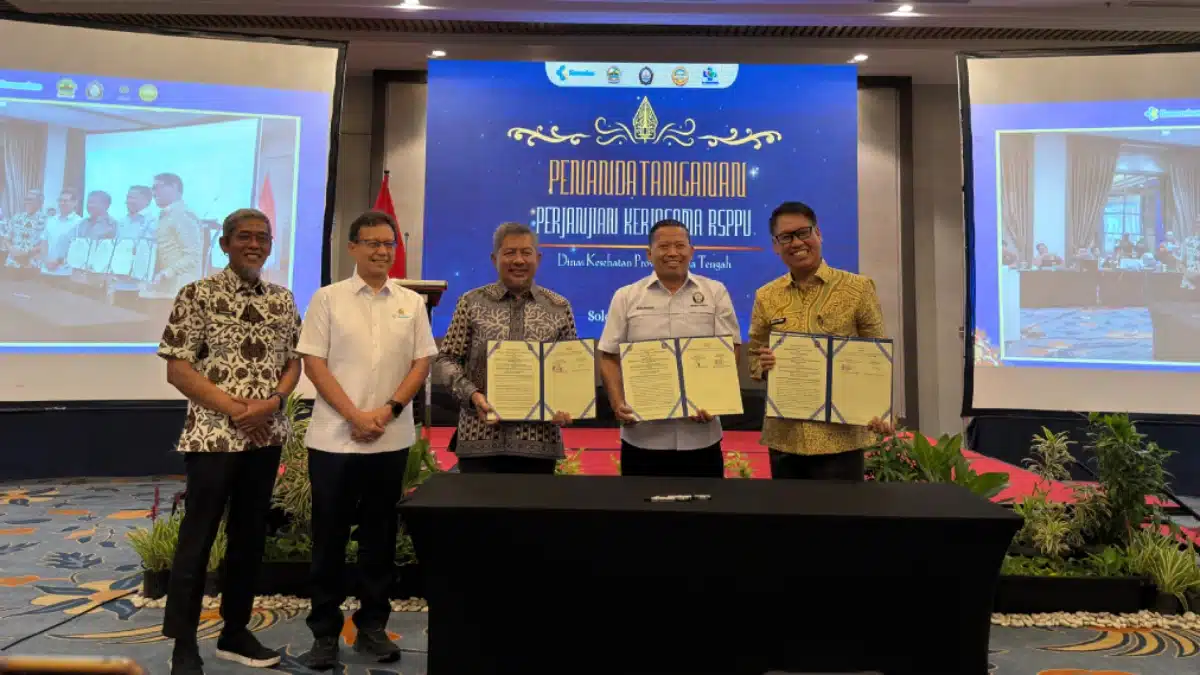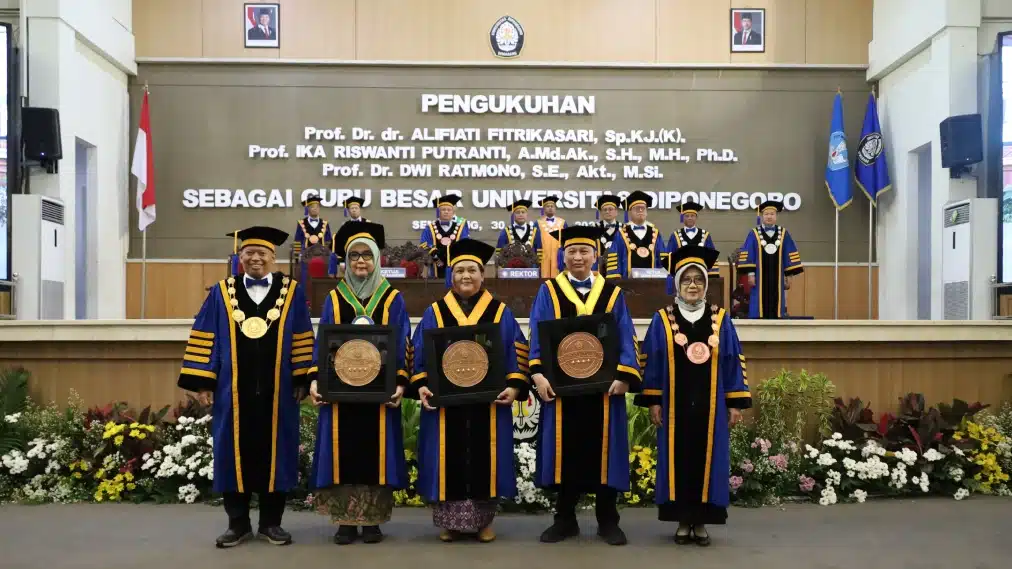Boyolali – Central Java (1/2). The team from the Department of Animal Science, Faculty of Animal and Agricultural Sciences, Diponegoro University, Semarang provided assistance to goat and quail breeders in Bawu Village, Kemusu District, Boyolali Regency.
The Secretary of Bawu Village stated that some of the problems experienced by goat and quail breeders included raising baby goats (kids), nutrition for weaning kids, fattening goats, preventing foot and mouth disease, cheap feed for quail, ammonia control and profit sharing administration.
The material presented by Edi Prayitno, S.Pt., M.Si., regarding kids starts with consuming solid feed in the form of forages or concentrates at the age of 2-3 weeks. Consumption of solid feed at this age is very useful for stimulating the development of the digestive tract so that it is immediately able to consume large amounts of feed like ruminants. Giving concentrates can spur the growth of higher body weights, so that they can be weaned at an earlier age when they have reached weaning weights. Weaning weight is usually determined at 2.5 times birth weight, but it depends on body condition.
The BUMDes group chaired by Mr. Parman said that each village member received 10 goats to be used as capital to increase family income, develop goat seeds, fatten goats and pilot project for other villages.
 The next material was delivered by Lilik Krismiyanto, S.Pt., M.Si., regarding differences in concentrate and finished feed for quail, manure management, cage manipulation and disease prevention. Bawu village quail farmers each took part in the partnership with a total of 3,000 birds. One of the quail breeders, Mrs. Haryati, stated that the main obstacles were expensive feed, knowledge of manure management and disease management.
The next material was delivered by Lilik Krismiyanto, S.Pt., M.Si., regarding differences in concentrate and finished feed for quail, manure management, cage manipulation and disease prevention. Bawu village quail farmers each took part in the partnership with a total of 3,000 birds. One of the quail breeders, Mrs. Haryati, stated that the main obstacles were expensive feed, knowledge of manure management and disease management.
Bawu village which has the potential for large agricultural land, especially the production of corn, rice, crops and grass that grows along the river can be used as an alternative feed with modern processing for livestock goats and quail.
The activities carried out by the FPP Undip Team and students of the Animal Science Study Program were carried out in a series of accelerating the Sustainable Development Goals (SDGs). Thus this activity is expected to end poverty that still exists in the community.
The FPP Undip Team is supported by Lilik Krismiyanto, S.Pt., M.Si., Edi Prayitno, S.Pt., M.Si., Dr. Vita Restitrisnani, S.Pt., M.Si., Dr. Ari Prima, S.Pt., M.Si., Dr. Dela Ayu Lestari, S.Pt., M.Si., Asep Setiaji, S.Pt., M.Si., Ph.D., Binti Ma’rifah, S.Pt., M.Si. and drh. Ikania Agusetyaningsih, M.Pt.









